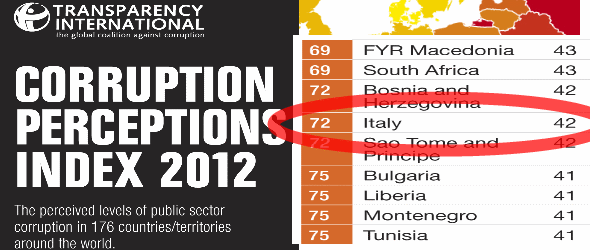This contributor, and former Australian politician, has long thought the problem in Europe is about structure not liquidity.
If this analysis is correct the answers lie more in structural reform than in firewalls and sovereign bailouts. However well-intentioned it may be the German led austerity response approaches the issue from the wrong end. Banks may need additional liquidity to overcome losses arising from bad business decisions; governments should not.
When a population shuns working and paying taxes while demanding generous entitlements economic collapse cannot be far away. It seems this imbalance between income and expenditure is the principal cause for national indebtedness and the unwillingness of markets to keep funding additional debt.
The situation is not limited to the Mediterranean countries, it also affects the UK, Ireland, France and now the Netherlands. Britain at least has its own central bank and is not dependent on Germany for policy direction.
It will be interesting to see if Germany can maintain its position if Sarkozy loses the French presidency this weekend. Even if he wins it appears he will distance France from the lockstep policy support he has given Angela Merkel; Holland certainly will.
National leaders outside of Germany are starting to worry about the effect of long term austerity and look to ways of promoting growth. The push for this should become more obvious next week. They should start with labour markets. Unions are strongest in the big industries and arguably the big industries can look after themselves.

In most countries it is small and medium size businesses that create the bulk of employment. Conversely, they have a major impact when they do not create jobs or when they reduce them. In Italy, I live between two small Chianti towns. The two largest non-agricultural employers in the area were a furniture factory in one and a kitchen manufacturer in the other. Both used to thrive; both closed down late last year. They are just two examples of why unemployment is as high as it is.
There is little hope of a recovery in employment until the small business owners relax their purse strings and start employing people. This is not going to happen until they can have management control over their workforce. It is impossible to run a business without the freedom to react to what is happening in your marketplace. Regulations and legal requirements are roadblocks to employment creation.
This is why Mario Monti is on the right track with his attempts to remove the worst of these roadblocks. He will be forced to accept some modification but the reforms that should pass Parliament are a start. More should follow.
It should become easier to pursue further reform when unions and workers see that employers do not want to engage in irresponsible dismissals. After all, what employer wants to pay between 18 and 24 months wages to dismiss a worker unless it is absolutely necessary.
This is reform, not austerity. It will make job creation possible.

Stop reading, start speaking
Stop translating in your head and start speaking Italian for real with the only audio course that prompt you to speak.
Increasing productivity should be high on the agenda. Encouraging flexible work place arrangements, variable hours, streamlining management, consulting and encouraging employees to contribute, reducing bureaucracy and red tape and eliminating duplicated functions.
Nothing drives business investment, creativity and job creation more than profits. Business owners take risks; often big risks; often their house is mortgaged to the bank. They must have the prospect of profit or the risks are not worth taking. If they make profits they grow and create more jobs.
What is needed in so many of the European economies is a positive approach to reform that has growth as its focus. The role of government should be to kick start that growth. Labour reform, administrative reform, even tax cuts to encourage small businesses.
Once people are working they will start spending and the drain on social welfare will diminish. All this is positive. The alternative of continued high unemployment, particularly among the young is unsustainable and will inevitably lead to civil unrest. It is not rocket science, Mrs Merkel.
By Stephen Lusher

Stephen Lusher served five terms in the Australian Federal Parliament. He worked around the fringes of politics before setting up Lush on Bondi, a trendy bar on Sydney’s Bondi Beach.
Frequent trips to Italy led to an inevitable love affair with Tuscany. He and his wife Cathy sold up in Sydney and purchased Il Mulinaccio in 2008.
Within two months of moving to the Chianti Hills he was diagnosed with throat cancer. The experience led to him re-focusing his life and priorities. After a few uncomfortable years he thinks he has it beaten.
His interests include wine, food, history, culture and travel.
He struggles with the Italian language and indulges himself in some occasional writing.
—————
Europe image by: Europe_(orthographic_projection).svg: Ssolbergj






